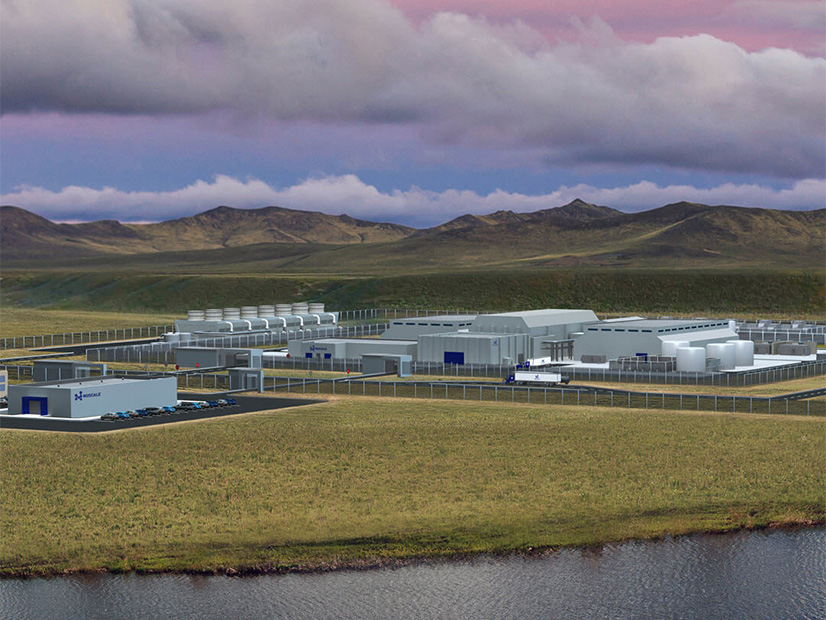OLYMPIA, Wash. — The House Environment & Energy Committee unanimously recommended Thursday that the full House of Representatives pass a bill to add advanced nuclear reactor technology to the alternative power sources that the state uses to replace fossil fuels.
House Bill 1584, sponsored by Rep. Stephanie Barnard (R), would add advanced nuclear to solar, wind, hydroelectric dams, landfill methane and other sources of non-fossil fuel power sources. Washington is legally required to eliminate 95% of its greenhouse gas emissions by 2050. Barnard represents the Tri-Cities, home of the 1,200-MW Columbia Generating Station nuclear plant, which produces roughly 12% of the state’s electricity.
The owner of the plant, Energy Northwest, supports the bill, as does the Grant County Public Utility District, which is considering building a small modular reactor (SMR) complex within its territory.
Each modular unit would be a mini-reactor capable of generating 50 to 300 MW. SMRs are designed to allow additional modules as needed, with 12 modules being the theoretical maximum. Compared with conventional nuclear, the concept is supposed to result in lower costs, faster construction times and more flexibility in tailoring a reactor complex to its customers’ needs.
Grant County PUD is looking at a design by Maryland-based X-energy but has not decided whether to pursue an SMR.
“We’re looking at advanced nuclear technology because of growth in our county,” Bill Clarke, a lobbyist representing the PUD, told the committee.
NuScale Power of Portland, Ore., became the first SMR developer to receive approval for its 60-MW design by the Nuclear Regulatory Commission. The company plans to submit an improved follow-up version of that design to the commission that includes increasing output to 77 MW each. The company is pursuing building its first complexes in Idaho Falls, Idaho, and Romania by the end of this decade.
Leaders from both Energy Northwest and the Tri-Cities want to attract NuScale to build at the site of two never-completed reactors next to the Columbia plant. That site has infrastructure in place to build either reactors or reactor components.
At Thursday’s committee hearing, Roger Lippman of Nuclear Free Northwest opposed the bill, saying the term “advanced nuclear technology” is not defined in the bill. He added that no advanced nuclear technology plants have begun operating in the U.S., meaning the technology does not have a proven track record.



